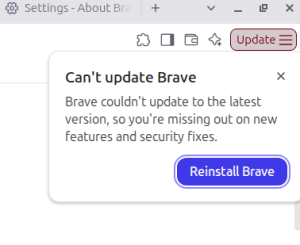No, Cryptocurrencies Aren’t Going to Kill the Polar Bears
So you might have heard over the past couple of weeks that cryptocurrency mining now uses more energy than 159 countries. This is being billed as a disaster for the environment. What the environmental alarmists at CNN won’t tell you, though, is that a lot of mining happens where electricity is cheap. Russian energy companies have such a huge surplus in energy production capacity that 40 international Bitcoin mining corporations have applied to set up shop nearby. Some cryptocurrency miners have been pestering hydroelectric producers for cheap power. One dude even figured out how to mine cryptocurrencies with a Tesla. So, yes, mining rigs do chew through energy something fierce, but if their owners can get cheap renewable energy, they’ll usually go for it.
What Makes Cryptocurrency Users Such Easy Targets?
Part of the problem may be that Satoshi Nakamoto deliberately chose an inefficient algorithm for Bitcoin because there is usually a trade-off between convenience and security. Securing Bitcoin with cryptography wouldn’t be worth much if the possibility of successfully attacking the network wasn’t prohibitively expensive for anyone but the most hardcore mad scientist type. Nakamoto was somewhat dismissive of the idea that mining Bitcoin could also eat up enormous amounts of electricity:
It’s the same situation as gold and gold mining. The marginal cost of gold mining tends to stay near the price of gold. Gold mining is a waste, but that waste is far less than the utility of having gold available as a medium of exchange. I think the case will be the same for Bitcoin. The utility of the exchanges made possible by Bitcoin will far exceed the cost of electricity used. Therefore, not having Bitcoin would be the net waste.
Gold mining uses the energy equivalent of 123.2 million barrels of oil every year and tears up the landscape something fierce. However, as Roger Ver so archly noted in a tweet, mining companies don’t stop mining gold because it’s valuable as a store of value and there is solid demand for gold in multiple industries. While it might be preferable if asteroid mining was already a thing, corporate head honchos aren’t going to listen much to environmental activists banging out their opinions on electronic devices that contain precious metals and rare-Earth elements when mining gold has so much utility in the industrialized world. Mining companies would pull out rather quickly if they could not make a profit by producing more gold and it’s not because they care about the environment. It’s because they care about not throwing money down a black hole.
Cryptocurrency mining rigs use the energy equivalent of 6.6 million barrels of oil annually while sitting in something that looks very much like a data center. That’s when they aren’t sitting on some Bitcoin nerd’s desk and producing heat as a side effect on those days when it’s just a little too chilly and the fam refuses to turn the heat up because heat is expensive. So you tell me why the dude with copious amounts of gold bling gets a free pass while the nerd who wants to use cryptocurrencies in his daily life gets criticized for it by environmentalists.
Believe It or Not, Some Cryptocurrency & Blockchain Insiders Really Do Care
At least experts in the cryptocurrency and blockchain niche are not ignoring the problem of energy usage. Grostlcoin invented a more efficient algorithm that makes it possible for the Grostl team to promote this cryptocurrency as something that could be mined on a Smart Phone. This may not entirely shut up the environmentalists, but could theoretically increase profits for each watt used. Solarcoin was created on the premise that the production of solar power could be rewarded with value tokens.
Some blockchain insiders have even gotten in on the act by creating systems like Power Ledger, which could be used to buy and sell energy on the blockchain. Theoretically, if you have solar panels on your house and produce more power than you normally use at home, then you could sell that power through use of smart contracts capable of monitoring the amount of energy you send out to the power grid. It works on the logic that what you earn from selling the extra energy from your solar panels could amount to pocket change, but at least you have access to the same system as the big power plants and every little bit helps when you have bills to pay.
So those who make their living in the cryptocurrency and blockchain niche don’t need to be guilt-tripped by environmentalists to care about polar bears and baby seals. We’re just more interested in finding solutions that the average Joe can participate in even if he doesn’t have a ton of venture capital to throw at the problem than we are in pointing fingers at the guy who has a mining rig on his desk. Those who have an entrepreneurial streak can look at ways that this cool new technology can be used to mitigate the impact that energy use has on the environment and, because we’re hippies who believe in free markets, find a way to do it before the government has a chance to stick its nose into our business.







